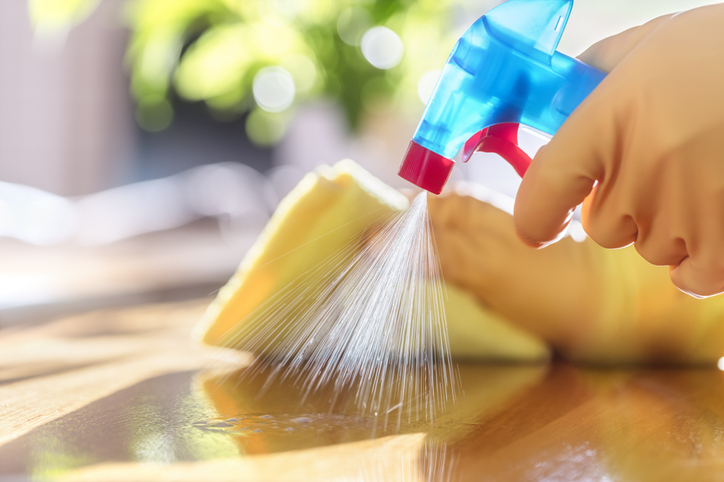Who doesn’t love Costco? I mean, bulk buying what’s better? Not much, but there is a dark side to bulk buying that ends with a garage full of regret. So, what’s actually worth bulk buying, and what’s worth leaving in the aisles? Let’s break it down.
1. Rotisserie Chicken (The Real MVP)

Let’s start with the undisputed champion of Costco smart buys—that magical $4.99 rotisserie chicken that somehow costs less than a fancy coffee. These birds are good for anything: shred one for salads, sandwiches, and soups throughout the week, or buy two and freeze portions for quick meal prep. Plus, Costco actually loses money on these beauties just to keep you coming back—talk about taking one for the team.
2. Gas

Coming in second with the savings is the gas pump. Costco gas consistently runs 20-30 cents cheaper per gallon than nearby stations, which adds up faster than you’d think. The savings can actually pay for your entire membership fee in about 10 fill-ups, depending on your vehicle’s size. What most people don’t know is that Costco’s gas meets Top Tier standards—the same premium quality as name-brand stations—so your engine gets the good stuff for less.
3. Coffee Beans

Costco’s coffee game is strong—for real, their signature beans are often roasted by Starbucks but cost about half as much. A 2-pound bag runs about what you’d pay for a half-pound at specialty shops, and contrary to popular belief, coffee beans can stay fresh for months when stored properly in an airtight container away from light. Also, the coffee selection rotates seasonally, so you can switch up your mornings without switching up your budget.
4. Batteries

Did you know that Costco batteries are manufactured by Duracell but cost about 40% less? Yup, they come with a 10-year leak-free guarantee, which is longer than most relationships last these days. The real genius move is stocking up during Costco’s periodic battery sales, where the already low prices drop even more. What most people don’t realize is that properly stored alkaline batteries can last up to 10 years, so that massive pack isn’t as ridiculous as your partner claims.
5. Paper Products

Let’s talk about the unsung heroes of your household—toilet paper, paper towels, and tissues that are about to become your best bulk-buying friends. Costco’s toilet paper comes out to about 75 cents per thousand sheets, compared to nearly double that at regular stores. These products never expire, take up predictable storage space, and let’s be honest—you’re definitely going to use them unless you’re planning to switch to leaves.
6. Pet Food

If your four-legged friend could do the math, they’d be begging you to buy their food at Costco. Their signature pet food lines are actually manufactured by premium pet food companies (Diamond Naturals, if you’re curious) but cost about 30% less than comparable premium brands. The smart move is checking the production dates stamped on the bags—they’re usually good for at least a year, and proper storage in airtight containers keeps ’em fresh even longer.
7. Maple Syrup

This isn’t just any maple syrup—this is the real deal, Grade A amber gold that makes pancakes somehow more delicious than they already were. Costco’s maple syrup comes in containers big enough to make Canadians proud, at prices that’ll make Vermont producers wonder how they do it. And guess what? Pure maple syrup is basically immortal when properly stored. It can last indefinitely in the freezer and for years in the fridge after opening.
8. Spices

Now, we’re moving on to the things you’ll regret buying. And we’re starting with spices. That giant container of paprika might look like it’s setting you up for a lifetime of perfectly seasoned dishes, but you’re actually investing in future disappointment. Most spices start losing their potency after about 6-12 months, even when stored properly in those massive plastic containers. By the time you’ve used a quarter of that industrial-sized curry powder, you’re basically adding aromatic sawdust to your food.
9. Snack Foods

That massive bag of pretzels might seem like a good deal until you realize it’s been sitting open for three weeks, getting staler than last year’s memes. The problem isn’t just the quantity—it’s the psychology of having that much snack food readily available. Studies show we tend to eat more when food comes in larger packages, and once these bags are open, the clock starts ticking on freshness. Most snacks start losing their crunch after about two weeks of being opened, no matter how many chip clips you use.
10. Baked Goods

Those muffins looked amazing in the store, and the price per piece had you feeling like a bargain-hunting champion. But unless you’re hosting a brunch for thirty people tomorrow, buying baked goods in Costco quantities isn’t the smartest idea. Even with careful freezing (which, let’s be honest, often leads to freezer-burned disappointment), most baked goods start declining in quality fast. Mold can start appearing within days, especially in humid climates, and defrosted bread never quite tastes as good as fresh.
11. Dairy Products

Even if you’re the kind of person who believes cheese is a food group, bulk dairy products start a countdown timer the moment you break their seal. That three-pack of milk? Unless your family goes through a gallon every two days, you’re likely to end up pouring money down the drain. The tricky part isn’t just the expiration dates—it’s the quality decline that happens once these products are opened. Cheese can start developing unwanted cultures, milk can absorb refrigerator odors, and yogurt can separate into something that looks like a science experiment.
12. Bulk Oils

Even high-quality oils start breaking down once opened, and exposure to light, heat, and air speeds up this process dramatically. Most households can’t use up these quantities before the oil starts developing off-flavors, which typically happens around 6-12 months after opening. The massive containers are also a nightmare to handle, leading to spills and waste every time you try to refill your more manageable everyday bottle.
13. Cleaning Supplies

That jumbo pack of cleaning products might make you feel like you’re prepared for any mess until you realize you’re actually stockpiling depreciation. Most cleaning products, especially bleach-based ones, start losing their effectiveness after about six months to a year, even when properly sealed. That mega-jug of bleach? It’s actually breaking down into saltwater as it sits in your garage, losing about 20% of its cleaning power every six months.








